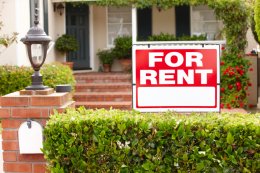
Lease houses
 Buying a home through a rent-to-own or lease-option agreement has become more popular in the aftermath of the 2008 financial meltdown. More people have been looking at creative solutions to buying a home, but it’s important to differentiate between creative and smart.
Buying a home through a rent-to-own or lease-option agreement has become more popular in the aftermath of the 2008 financial meltdown. More people have been looking at creative solutions to buying a home, but it’s important to differentiate between creative and smart.
In a couple previous Zing articles on renting to own, Clay looks at the advantages for sellers and buyers, and Gaby gives a high-level overview of the rent-to-own process. In this post, we’re going to dig deeper into how rent-to-own agreements work, and if they’re right for you.
Renting to own might be worth considering depending on your situation, but you need to carefully research and plan the agreement because there are a lot more potential pitfalls than there are in a traditional home purchase.
How Rent-to-Own Works
These deals become more common when the market is slow for two reasons. First, a slow market makes it difficult for homeowners to sell their homes. Second, when the market is slow, more people struggle with low credit and saving up for a down payment. On the other hand, these deals aren’t as popular when the market is up. Rent-to-own agreements involve increased risks for both sellers and buyers, so sellers are less likely to bother with a rent-to-own agreement if they can just sell the house and be done with it.
Rent-to-own, sometimes called a lease option or lease purchase, is a self-imposed savings plan for the renter/buyer. The renter pays an upfront fee, called an option fee, which guarantees the renter the option to purchase the home after a specified amount of time, usually one to three years. The renter agrees to pay the fair market value monthly rent on the home plus a monthly rent credit. During this time, the homeowner can’t sell the home to someone else. The price of the home is fixed at the beginning of the period, and the renter gets it at the preset price – whether the value goes up or down. After the time period is up, the renter can put their upfront option fee and accumulated rent credit toward the purchase of the home. Nowadays, rent-to-own, lease option and lease purchase are often used interchangeably, but beware: In some agreements, the renter is obligated to buy the home, even if they can’t afford it.
Usually, the renter isn’t obligated to buy the home – just make sure you clarify that in the contract. If the renter chooses not to buy the home, the owner gets to keep whatever money the renter paid toward buying the home, including the upfront option fee and all monthly rent credits.
Pros and Cons for Renter/Buyer
- You can try out the home and the neighborhood before committing to the purchase.
- The price of the home is locked in (of course, this could also be a con).
- If this is your dream home we’re talking about, you’ve got it guaranteed, even though you can’t afford it right now.
Before you start packing, though, here’s a couple cons to think about:
- The renter is almost always responsible for home maintenance and repairs.
- Most contracts stipulate that you lose your monthly rent credit if you’re even one day late on your rent that month.
- Even if you’re current with your payments, if the homeowner doesn’t make the mortgage, taxes and insurance payments, they could lose the house and you would get evicted.
And, not to be a Debby Downer, but if you can’t afford a home and mortgage now, will you be able to in 3 years? What will change? Instead of renting to own, why not just set up a separate savings account and save the money on your own with no risk of losing it?
Pros and Cons for Seller
- You get a quick cash flow that’s more than what you would get if you were just renting – remember the several thousand dollar option fee?
- You’re (basically) guaranteed to sell your home.
- If the renter doesn’t buy, you get to keep all the extra money.
- The renter/buyer will probably take better care of the home than a traditional renter because they plan on living there longer and making it theirs one day.
- You can’t sell the house to someone else during that period of time.
- The home price is locked in. Again, this is both a pro and a con. In theory, the price of your home is going to increase every year.
- If the renter/buyer can’t pay after a while or bails on you, you’ll have the extra money they paid you, but if you can’t afford to pay the mortgage on two homes, you might be in financial trouble of your own, and you’ll have to go through the hassle of finding new tenants.
Contract Tips
Now, whether you’re the renter/buyer or the seller, there are a number of things you need to figure out and plan for before you sign a contract, and it’s strongly recommended that each of you have a real estate lawyer help you draw up the agreement to make sure everything is legal and safe.

















